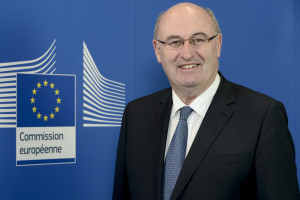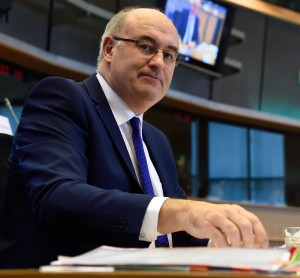
1. At the beginning of your mandate President Juncker invited you to analyse the possibility of simplifying the current EU quality policy. Since then a year has passed by. Have you taken any decision on this and if yes could you please specify the upcoming proposal and agenda?
Simplification of current EU quality policy is one of my priorities. My starting point is: where and how we can make life easier for producers?
In parallel to a thorough in-house analysis, Member States and stakeholders have been consulted. There is some scope for simplification of procedural rules for GI wines in the framework of the implementing rules and delegated act that have to be done. This process has been started. Our objective there is to simplify the rules for wine applications and modifications; shorten and simplify information requirements; present user-friendly application models; improve public information; or shorten certain deadlines.
Our analysis shows that we could do more. Let me point out just one aspect.
There will be a constant need to adapt product specifications for existing GI wines – to adapt to the market, new technologies, etc. My understanding is that once wine producers agree on such a change, they want this up and running as soon as possible. In the past, all they had to do is agree this with their national administration. No opposition procedure may have been necessary. This is radically different now. Modifying a product specification now requires two examinations – first at national and then at Commission level. Two opposition procedures have to be launched – one at national level and then one at EU level. Experience with GI foodstuff shows that this process is lengthy. It can take years. It is also increasingly used for legal challenges. In addition, we see that wine rules are more burdensome than those for foodstuffs: for example, the current wine rules foresee a specific Commission decision to launch the EU-wide opposition procedure.
- Commissioner Malmström has recently published a new EU trade strategy which remains silent on the perspectives for GIs in the coming years. What is your strategy to make sure GIs remain at the top of the EU and international trade agenda?
Protection of GIs has been an essential feature of the EU trade strategy over the last 20 years, both at multilateral and bilateral level. This is still valid now and will remain valid in the future: the EU is pursuing an ambitious agenda on this matter, starting with the emphasis put on this topic in the context of TTIP, where GIs represent a must-have for the EU. But this is equally valid for other key trade negotiations either on-going (e.g. Japan and China) or soon to start (e.g. Mexico, Philippines). At the multilateral level, GIs are also at the top of the international trade agenda of the EU and its Member States: in the Doha Round of the WTO, the EU seeks to improve GI protection through the creation of a binding multilateral GI register facilitating protection of GIs, and through extension of the higher level of protection currently only available for GIs for wines and spirits to GIs for all  products. In WIPO, the EU and its Member States contributed to the successful outcome of the Diplomatic Conference in May this year concluding the review of the Lisbon Agreement for the Protection of Appellations of Origin and their International Registration, which resulted in the adoption of the Geneva Act, a modern attractive multilateral treaty covering all GIs.
products. In WIPO, the EU and its Member States contributed to the successful outcome of the Diplomatic Conference in May this year concluding the review of the Lisbon Agreement for the Protection of Appellations of Origin and their International Registration, which resulted in the adoption of the Geneva Act, a modern attractive multilateral treaty covering all GIs.
- The TPP has been recently concluded. A number of negotiating texts showing that the recognition of our GIs could be seriously jeopardised have been leaked. If this is the case, what is your strategy to ensure that we do not face unfair competition from trade marks registered by third parties?
Our first assessment is that GI provisions in that agreement do not restrict the protection of GIs more than is standard practice in the EU and that compliance with TRIPS is assured. Therefore, these rules do not seem to hamper the EU ability to continue to pursue an ambitious GI agenda with the TPP membership, and beyond.

